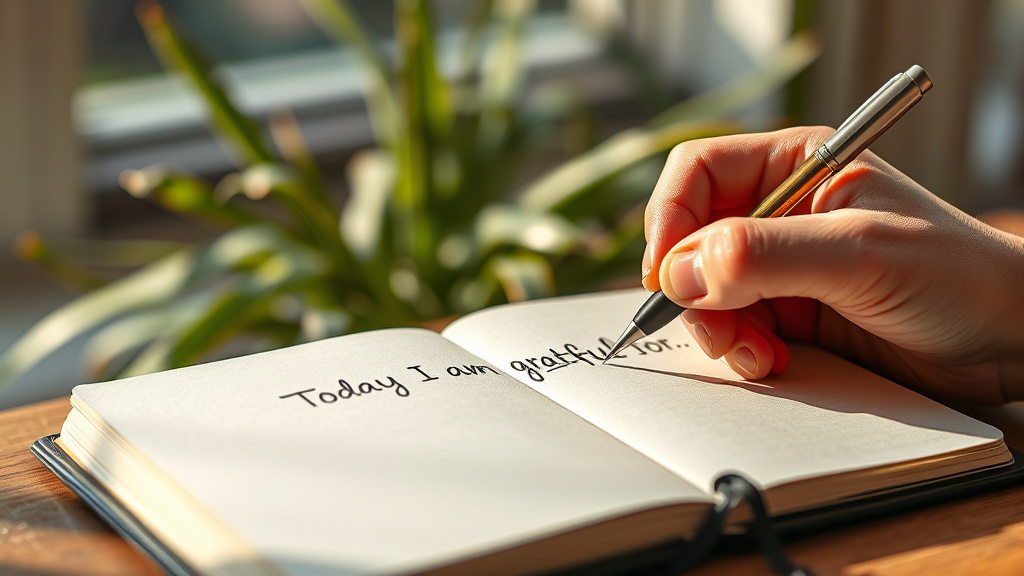Clear Your Mind: Journaling for Stress and Focus (2025 Guide)
In today’s fast-paced world, maintaining mental clarity and emotional stability can be a daily challenge. Amidst endless deadlines, social pressures, and personal responsibilities, many individuals seek simple yet effective tools for stress management and enhanced focus. One such powerful practice is journaling for stress and focus—a versatile technique rooted in expressive writing and emotional regulation. Whether it’s a few lines each morning or an evening reflection, journaling offers a way to process emotions, release mental clutter, and cultivate a mindful approach to daily life. This comprehensive guide explores how different journaling practices can help you achieve greater cognitive clarity, reduce stress, and boost productivity through intentional self-reflection.

Journaling is a simple habit that reduces stress and improves focus.
In recent years, journaling for stress and focus has gained recognition not only as a therapeutic writing method but also as a practical productivity tool. As we delve into the science behind this activity, you’ll discover why putting pen to paper can be more than a habit—it’s a transformational process that nurtures mental well-being and sharpens focus. By adopting a daily journaling routine, you can cultivate a mindful space for self-awareness, guided by simple prompts or free expression. This journey toward better stress management and mental clarity isn’t about perfection but about creating a sustainable habit that integrates seamlessly into your busy lifestyle, offering you lasting benefits for both body and mind.
Why Journaling Works for Stress and Focus
The Psychology Behind Writing
At its core, journaling for stress and focus leverages the power of expressive writing—a practice backed by psychological research that shows how writing about difficult emotions reduces mental health symptoms and enhances emotional resilience. When you write about your thoughts and feelings, it activates your brain’s prefrontal cortex, the area responsible for rational thought, helping you process complex emotions and gain new perspectives. This cognitive engagement creates a sense of control over stressors, transforming overwhelming feelings into manageable insights. Moreover, engaging regularly in this form of emotional regulation can develop your capacity to handle future stressors with greater ease.
Writing also fosters cognitive clarity by removing mental clutter. Instead of ruminating over worries or unspoken concerns, journaling helps organize thoughts and prioritize what truly matters. This decluttering effect enhances productivity, enabling you to focus on actionable steps rather than being lost in a sea of anxious thoughts. Mindfulness journaling—a technique where you observe your thoughts without judgment—further amplifies this benefit by anchoring you in the present moment, creating a space where clarity naturally emerges through intentional reflection.
Journaling and Emotional Release
One of the most profound benefits of journaling is its capacity for emotional release. When emotions—anger, sadness, frustration—accumulate, they can bottleneck our mental and physical health. Therapeutic writing allows for the safe exploration of these feelings without fear of judgment or interruption. By expressing yourself on paper, you facilitate stress relief through journaling, which releases pent-up energy, reduces anxiety, and promotes a sense of calm. This act not only helps lower stress hormones but also builds resilience, making it easier to stay centered during chaotic moments.
Furthermore, journaling for stress and focus promotes self-reflection, another core facet of mental wellness. Recognizing patterns in your thoughts and behaviors can help you identify triggers and develop proactive coping strategies. Over time, this habit cultivates a balanced emotional landscape where you’re more attuned to your mental state and better equipped to navigate life’s challenges with grace and clarity.
Journaling for Mental Clarity
Beyond emotional processing, journaling provides a direct pathway to mental clarity. As mental overload diminishes through consistent writing for mental clarity, your brain can focus on what truly matters. This clarity stems from breaking down complex problems into digestible insights, allowing you to set realistic goals and prioritize effectively. For many, this leads to a tangible boost in productivity—a vital benefit for busy professionals seeking to optimize their time and mental energy.
Incorporating short, focused mindfulness journaling sessions—such as tracking your gratitude or successes—further enhances this clarity. When approached thoughtfully, journaling doesn’t just serve as a stress outlet but becomes a strategic productivity tool that supports long-term mental health and performance.
Different Types of Journaling Practices
Gratitude Journaling
Practicing gratitude journaling involves regularly listing things you are thankful for, which shifts focus from stressors to positive aspects of life. This simple yet powerful practice rewires your brain toward optimism, fostering resilience and reducing anxiety. For instance, dedicating five minutes each morning to jot down three things you appreciate can set a positive tone for the day, cultivating stress relief through journaling and promoting emotional regulation.

Gratitude journaling helps shift focus from stress to positivity.
Bullet Journaling for Organization
Bullet journaling combines list-making with creative visuals, making it a versatile method for organizing tasks, tracking habits, and setting goals. Its flexible framework encourages clarity in planning, which naturally counters feelings of overwhelm—especially effective for those juggling multiple responsibilities. By integrating productivity tools within your bullet journal, you transform chaos into order, paving the way for better focus and stress management.
Reflective Journaling for Self-Awareness
Reflective journaling emphasizes introspection, encouraging you to analyze experiences, emotions, and behavior patterns. This practice enhances self-awareness, which is crucial for emotional regulation and reducing impulsivity. Writing about personal challenges or successes nurtures a growth mindset, helping you develop resilience and clarity over time.
Guided Prompts for Stress Relief
If you’re new to journaling for stress and focus, using guided prompts can be especially helpful. Prompts such as “What am I feeling right now?” or “What are three things I can do to ease my stress?” offer structure and support stress management techniques. These prompts guide your writing toward solutions and insights, making journaling a purposeful activity that promotes productivity and emotional well-being.
How to Start a Daily Journaling Routine
Choosing the Right Journal and Pen
The foundation of an effective daily journaling routine begins with selecting tools that inspire you. A journal that feels comfortable to write in, along with a smooth-flowing pen, can make the process more inviting. Some prefer lined notebooks for structure, while others opt for blank pages to encourage creativity. The key is to choose options that make regular writing feel like a treat rather than a chore.
Best Time of Day to Journal

Journaling before bed can improve focus and emotional balance.
Finding the optimal time to journal is a personalized experience. Some prefer morning sessions to set intentions, practice mindfulness journaling, or cultivate gratitude before the chaos of the day begins. Others find evening journaling helps decompress, process daily events, and promote better sleep—another critical component of mental wellness. Experiment with what fits your schedule and lifestyle, and be consistent.
Setting Small Goals for Consistency
Building a daily journaling routine doesn’t require hours of writing. Start with five minutes a day, focusing on quality rather than quantity. Gradually increase your practice as it becomes a comforting part of your day. Use productivity tools like timers or habit trackers to stay accountable, reinforcing the habit of self-reflection and emotional regulation through journaling.
FAQs about Journaling for Stress and Focus
How long should I journal each day?
There’s no one-size-fits-all answer, but initially, aim for 5-10 minutes to develop a habit. As you become more comfortable, you can extend your sessions or keep them brief—what matters most is consistency and quality.
Can digital journaling be as effective as writing by hand?
Absolutely. Digital tools like journaling apps can offer convenience and mobility, especially for busy schedules. The key is choosing platforms that promote privacy and ease of use, ensuring you stay engaged in the practice. Both methods can provide profound stress relief through journaling and enhance mindfulness.
Is journaling recommended by mental health professionals?
Yes, many mental health professionals advocate therapeutic writing and expressive writing as effective tools for managing stress, improving emotional regulation, and gaining clarity. When combined with professional guidance, journaling becomes a beneficial complement to other stress management techniques.
Conclusion
Journaling for stress and focus stands out as a versatile, accessible, and scientifically-supported practice that empowers you to manage emotional challenges, achieve mental clarity, and enhance overall well-being. Whether through gratitude journaling, reflective writing, or guided prompts, establishing a daily journaling routine can counteract mental clutter, foster resilience, and support your goals for a healthier, more balanced life. As a productivity tool and a source of emotional regulation, journaling seamlessly integrates into your busy schedule, offering sustainable benefits that extend beyond the page. For those seeking additional ways to bolster their stress management strategies, exploring resources in our Mental Wellness Hub can provide further insight and support toward cultivating a more mindful, centered life.
